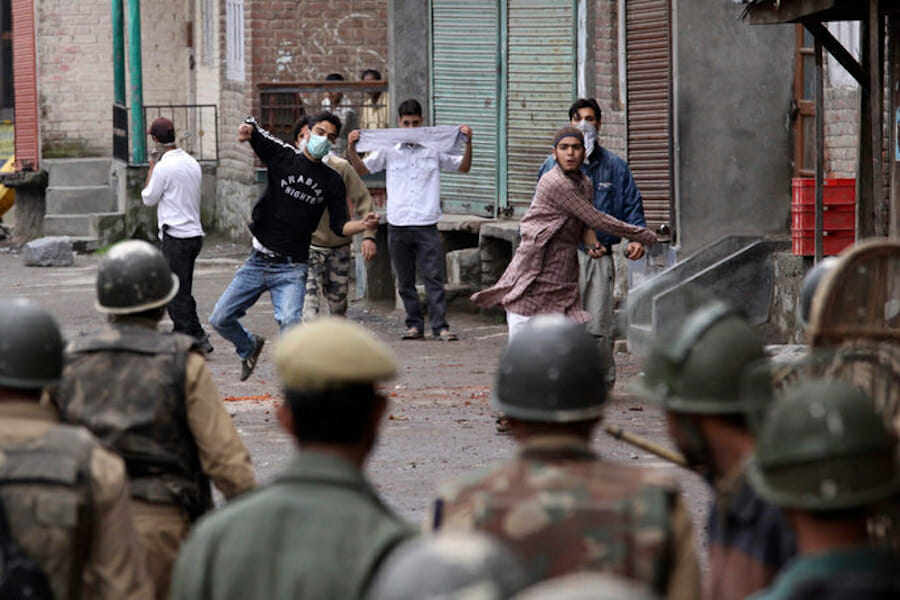
Kashmir Bleeds under Modi’s Ultra-nationalist Moves
Recently, in occupied Kashmir, Indian police unjustifiably arrested several people including Jammu and Kashmir Liberation Front (JKLF) leader, Noor Muhammad Kalwal, in Srinagar and other areas. The occupation authorities have already put almost all Hurriyat leaders including Syed Ali Gilani, Mirwaiz Umar Farooq, Muhammad Yasin Malik, Muhammad Ashraf Sehrai, Mukhtar Ahmed Waza, Hilal Ahmed War and Qazi Yasir under house arrest or in detention to stop them from conducting the election boycott campaign. Sadly and yet ironically, the peaceful co-existence of India and Pakistan in South Asia has been imperiled because of the festering and simmering dispute over Kashmir. This dispute has already caused numerous wars and large-scale military escalations between the two belligerent states, involving nuclear brinkmanship. The significance of early resolution of the dispute has become an inevitable need since the issue has become a nuclear flashpoint.
The Kashmir Freedom Movement which began in 1989 had a strong indigenous base and motivation which rejected the Indian allegations of its Pakistani linkage. Yet objectively seen, it is an accumulative result of the continuous denial of the right of self-determination and most crucially the political failures of the Indian government’s repressive policies enforced by Indian security forces. Discriminatory economic policies have resulted in the impoverishment of Kashmir. This led to the disillusionment of the Kashmiris’ political system and led to the rise of militant Hindu nationalism and marginalized the Muslims in India.
Lives are lost each day as each side justifies itself and the public remains silent except a few loud mouths on social media. Those with a security cover condemn the rebels and those without choose to remain silent. The outsiders write columns that are mostly devoid of any grass roots reality and deeper understanding of the context because they know it is not going to affect them anyway. The connecting thread (humanism and philanthropy) between those who apparently claim to be the champions of human rights and the suffering of the Kashmiris vanished long ago. More than 96,000 Kashmiris have lost their lives during this epic struggle that began in 1989.
Indian policies in Kashmir reflect India’s lack of humanism accompanied by state tyranny and brinkmanship in the Vale. The ongoing army-civilian dichotomy in Kashmir is quite visible and now the cops’ versus the rest is becoming yet another social pathology which indicates that the Kashmir conflict has started consuming the local ethos as well.
As for India, this bloody affair is costlier now both socially and morally. The call for honoring the norms of international law and order is becoming the voice of international civil society which led to the recent UN effort to publish its first report on India’s blatant human rights violations in Kashmir. India must realise the effects of these horrible acts– short term rage, revenge, divisions and labels are not the right solutions. Indian policy makers have to find solutions rather than talking and blaming the cult of political Islam under the banner of Wahabism and Islamic extremism.
Kashmir is a human rights crisis. Yet the former CNN India bureau chief and current managing editor of Foreign Policy, Ravi Agrawal, is astonished at how the Indian media hasn’t been writing more about this. He is bewildered by the fact there is no big protest in India against Internet shutdowns in Kashmir and how is it continues in the world’s biggest democracy without serious questions being raised.

